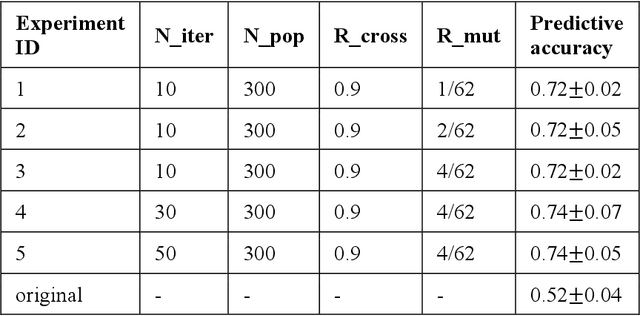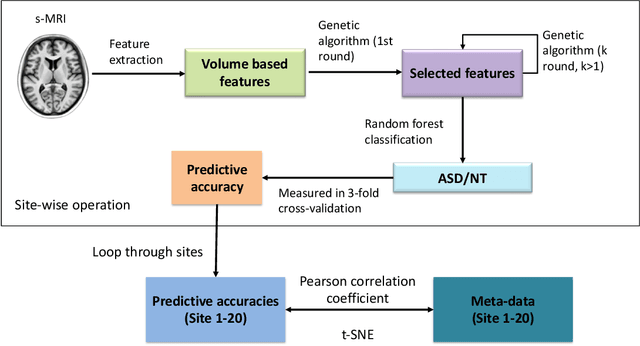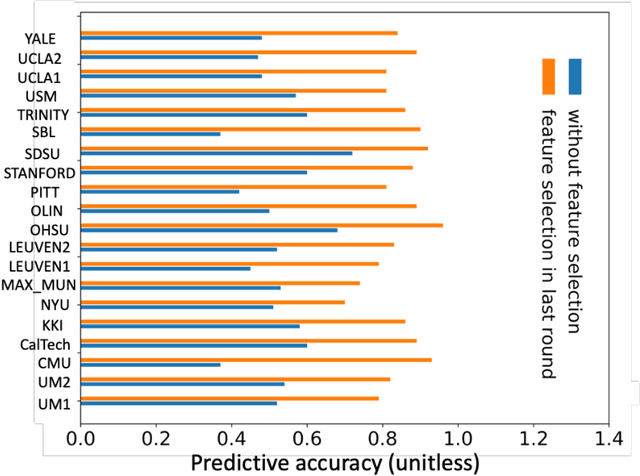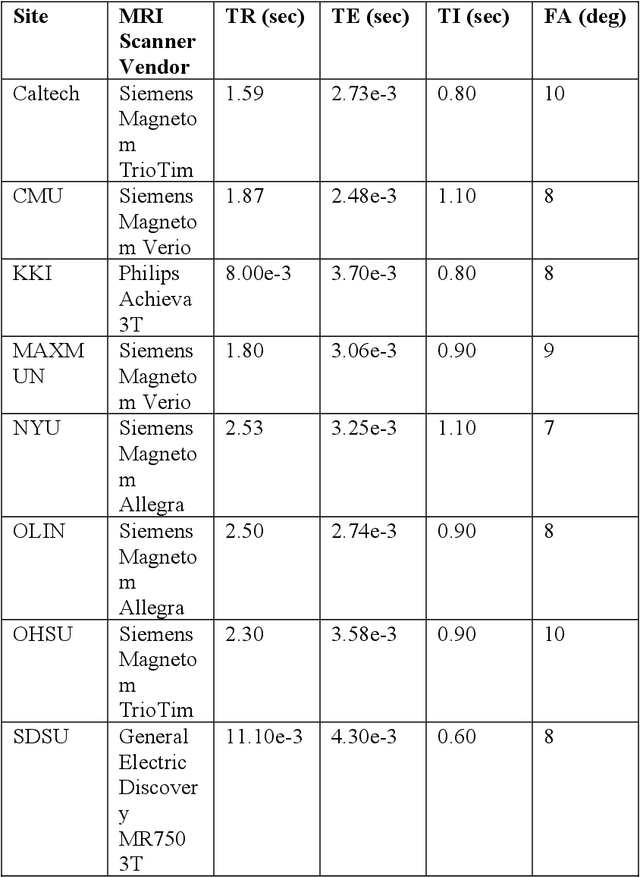Meta-data Study in Autism Spectrum Disorder Classification Based on Structural MRI
Paper and Code
Jun 09, 2022



Accurate diagnosis of autism spectrum disorder (ASD) based on neuroimaging data has significant implications, as extracting useful information from neuroimaging data for ASD detection is challenging. Even though machine learning techniques have been leveraged to improve the information extraction from neuroimaging data, the varying data quality caused by different meta-data conditions (i.e., data collection strategies) limits the effective information that can be extracted, thus leading to data-dependent predictive accuracies in ASD detection, which can be worse than random guess in some cases. In this work, we systematically investigate the impact of three kinds of meta-data on the predictive accuracy of classifying ASD based on structural MRI collected from 20 different sites, where meta-data conditions vary.
 Add to Chrome
Add to Chrome Add to Firefox
Add to Firefox Add to Edge
Add to Edge